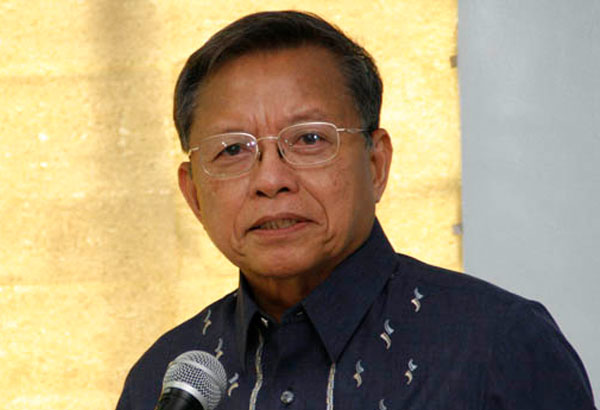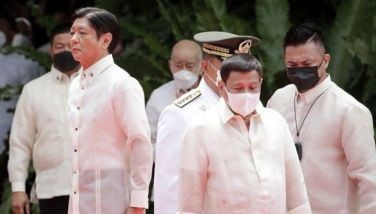Ex-CJ Puno: Only federal government can prevent split of country

Retired Chief Justice Reynato Puno sees the shift to federalism as the antidote to the problems of Moros and indigenous people. He says that the unitary form of government has resulted to the decadence of the country's democracy. mwss.gov.ph
MANILA, Philippines — Retired Chief Justice Reynato Puno called for the country's shift to federalism as it will address the diversity of Filipino people, saying it is the key to solve the problems of Muslims and indigenous people.
Puno on Thursday said the demands of Moros and IPs for self-governance can only be granted if a federal government is in place.
“A unitary government can only grant IPs regional autonomy but not the right of self-rule, which can only be given to sovereign states in a federal set up of a government,” Puno said.
“Only a federal form of government can satisfy the identity-based demands of Muslims and IPs and can only prevent the splinter of our republic,” he added.
Puno also noted that had the previous administrations met these demands, the Marawi crisis would not have happened.
Poverty, historical neglect and injustice are seen as the factors behind the emergence of secessionist groups in Mindanao.
President Rodrigo Duterte, the first Mindanaoan chief executive, cited peace in the southern Philippines and economic development not only in “imperial” Manila but all regions in the country as the reasons for the need to shift to federal government.
READ: Duterte renews call for shift to federalism
During campaign, he promised a federal government as one of his key platforms.
READ: A year of hits, misses and postponed promises
The country currently employs a unitary form of government with much of the power emerging from the central government.
Federalism provides more powers to local governments, including the power to establish courts, implement business regulations and impose taxes.
Countries employing federal systems include United Sates, Canada, Germany, Australia, Malaysia, India and Mexico, among others.
READ: Federalism: What Filipinos need to know
Slippery slopes of federalism
Puno emphasized that the allocation of powers of government is one of the slippery slopes of federalism, noting the conflicts among the legislative, judiciary and executive branches following the spate of impeachment complaints against high-ranking government officials.
The impeachment complaints against Chief Justice Maria Lourdes Sereno and Commission on Elections Chair Andres Bautista are already rolling in the Congress.
Vice President Leni Robredo, Ombudsman Conchita Carpio-Morales, Commission on Human Rights Chief Chito Gascon and even President Rodrigo Duterte also dealt with calls for resignation and impeachment.
“We should take extra care that no branch of the government will overpower another in the exercise of its power. If we fail to balance the power of government, federalism will fail,” Puno said.
Federalism also requires the division of power between the central government and its constituent states.
Based on a 2008 proposal by former Sen. Aquilino Pimentel Jr., also a federalism advocate, there will be 12 federal states: Northern Luzon, Central Luzon, Metro Manila, Southern Tagalog, Bicol, Minparom (Mindoro-Palawan-Romblon-Marinduque), Eastern Visayas, Western Visayas, Central Visayas, Northern Mindanao, Bangsamoro and Southern Mindanao.
Metro Manila will be the federal administrative region.
“Locating the exact balance will determine the success of federalism in promoting unity despite diversity with the union,” Puno said.
For the shift to federalism to succeed, there is a need for a truly independent judiciary, the former chief magistrate also stressed.
"Our highest court should enjoy, among others, fiscal independence from other political branches of the government in order to be really independent. The promotion, appointment and removal of members should be insulated from the partisan politics," he said.
Critics are wary that federalism would lead to fragmentation given the ethno-linguistic divide in the country and could strengthen the hold of political dynasties.
In a archipelagic country like the Philippines, the centralization of powers—the essence of unitary government—has resulted to the decadence of the country’s democracy, he noted.
“Federalism is not a magic bullet that will put to rest our problems as people. I reiterate my submission that it is a better vehicle to achieve our aspirations as people, better than unitary government,” Puno said.
- Latest
- Trending



























